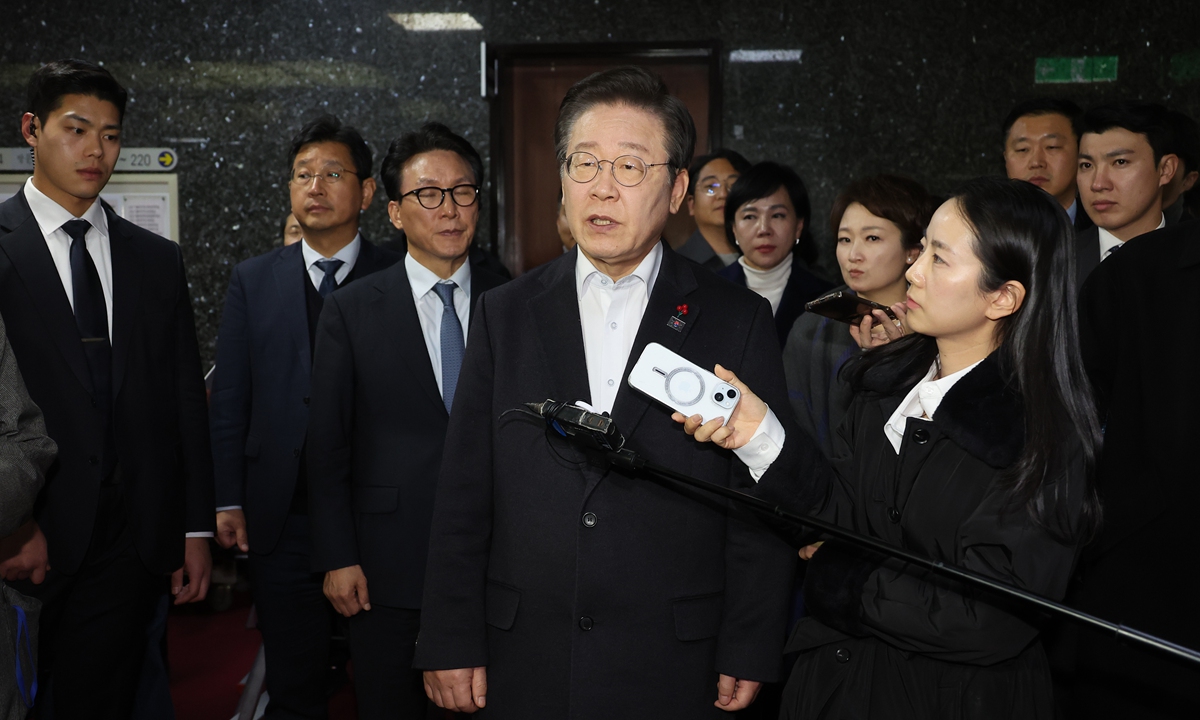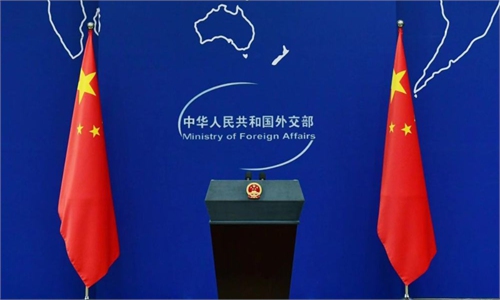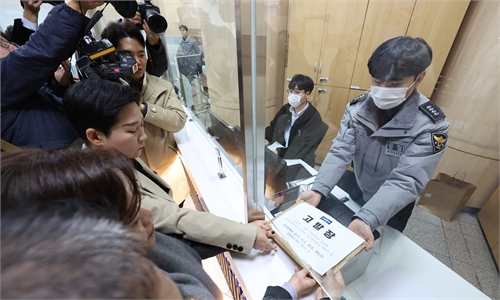Likelihood of Yoon's impeachment 'on the rise' after ruling party leader's reversal of stance

South Korea's main opposition Democratic Party leader Lee Jae-myung arrives at the National Assembly on December 6, 2024, as he demands an early vote on the impeachment motion against President Yoon Suk-yeol. Lee is requesting to move the originally scheduled vote from 7 pm to 5 pm on December 7, according to media reports. Photo: VCG
As South Korea's martial law chaos entered its fourth day, Han Dong-hoon, leader of the ruling People Power Party (PPP), called on Friday for President Yoon Suk-yeol to be "immediately suspended from his duties."
Han's reversal from his previous stance is viewed by Chinese expert as a sign that the likelihood of Yoon's impeachment is increasing. Yoon's unexpected move of declaring martial law has had significant impact on the country's relations with the US and Japan, the expert added.
Han called an emergency meeting on Friday and claimed that he has "credible evidence" Yoon mobilized troops in a bid to arrest politicians on the night of martial law, and that Yoon "poses a danger to the country and its people," the Xinhua News Agency reported.
If Yoon continues to serve as president, there is great concern that extreme acts like this emergency martial law will be repeated, Han said, the report noted.
Hong Jang-won, first deputy director of South Korea's National Intelligence Service (NIS), confirmed earlier on Friday that Yoon had ordered the arrest of prominent lawmakers of the ruling and main opposition parties shortly after he declared martial law, including the main opposition Democratic Party leader Lee Jae-myung, ruling party leader Han Dong-hoon, and National Assembly Speaker Woo Won-Shik, Yonhap News Agency reported.
Han's latest remarks ran counter to his position on Thursday when he pledged his party would fight the opposition-led impeachment motion scheduled to take place at around 7 pm Saturday.
"This could be an indication that Han may support the impeachment, which means the likelihood of the motion passing is on the rise," Xiang Haoyu, a research fellow at the China Institute of International Studies, told the Global Times on Friday, adding that confirmation of the "arrest list" from the intelligence agency and the public's negative perception have further exacerbated the unfavorable situation for Yoon, Xiang said.
The motion to impeach the South Korean president requires at least two-thirds, or 200 of the 300-seat parliament, to vote in favor for it to pass. The opposition parties currently hold a combined 192 seats in National Assembly, which means it needs at least eight of the 108 ruling party lawmakers to vote with opposition parties.
However, Xiang noted that many senior members within the ruling party wish to maintain party unity and avoid a repeat of the situation eight years ago when former president Park Geun-hye was impeached.
The dramatic incident is believed to have had significant impact on South Korea's diplomatic relations, particularly with the US and Japan.
Following Seoul's imposition of martial law, US Defense Secretary Lloyd Austin canceled his plans to travel to South Korea in the near term, Reuters reported on Thursday.
Japanese Prime Minister Shigeru Ishiba's trip to South Korea set for January will also likely be postponed, Asia News Network reported, as will the visit of Japanese Defense Minister Gen Nakatani to the country scheduled for late December.
On Wednesday, US Deputy Secretary of State Kurt Campbell said that Yoon had "badly misjudged" his decision to declare martial law, and it had been seen as "deeply problematic" and "illegitimate," according to Reuters.
"From the US perspective, Yoon's move is seen as a regression of what it believes to be 'democracy,' which will undoubtedly disappoint and irritate Washington and in turn affect the US-South Korea alliance; while on the Japanese side, the improvement of ties with its neighbor looks like it will be stalled," said Xiang. Furthermore, US-Japan-South Korea trilateral cooperation may also face challenges, he added.


